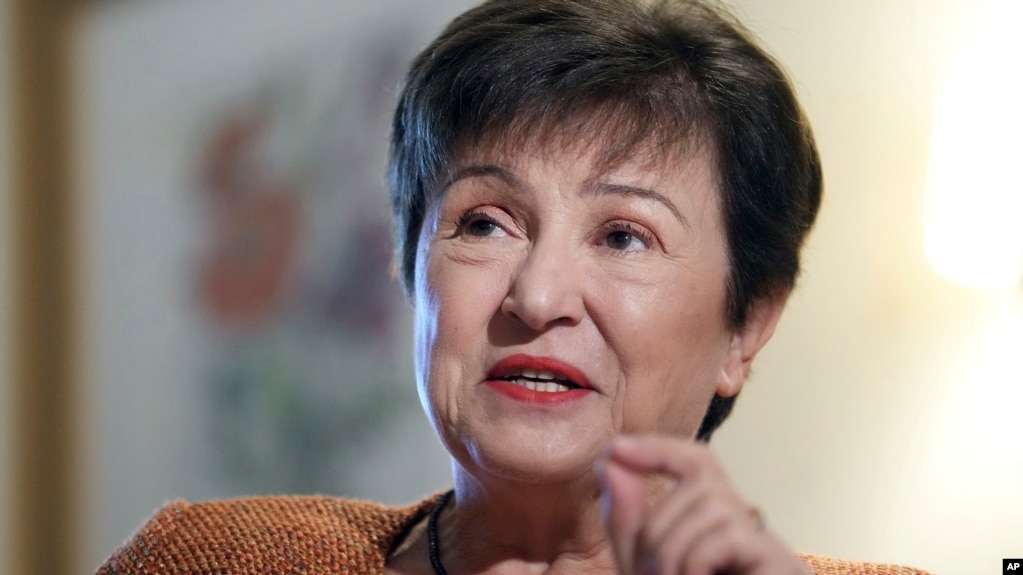
The head of the International Monetary Fund (IMF) said it was time for China to abandon its massive lockdown and take a more targeted response to the coronavirus outbreak. Such a change would soften the impact on the world economy, she said. At present, the global economy is already facing problems such as high inflation, energy crisis, and interruption of food supply. In recent days, rare and large-scale anti-zeroing policy protests have erupted across China.
In an interview with The Associated Press on Tuesday (November 29), IMF Managing Director Kristalina Georgieva urged a "recalibration" of China's rigor of quarantining every single case. Zeroing out” policy “precisely because of the impact it has on people and the economy”.
Georgieva also addressed a wide range of issues in her interview with The Associated Press. She warned that it was too early for the Fed to stop raising interest rates and hoped that the energy crisis caused by the Russia-Ukraine war would boost the development of renewable energy in Europe. She also called the hunger that developing countries are experiencing "the most important solvable problem in the world".
This past weekend, several mainland Chinese cities and Hong Kong erupted in protests, the most high-profile public dissent in recent decades. Authorities have eased some lockdown measures, but there is no sign of abandoning their overall "clearance" policy, which has kept millions of people at home for months at a time.
Georgieva said: "We see the importance of abandoning mass lockdowns and adopting more targeted restrictions. Doing so can help contain the spread of COVID without causing major economic costs.
Georgieva also urged China to review its vaccine policy and focus on the vaccination of "vulnerable groups".
Low vaccination rates among the elderly have been a major reason Beijing has been in lockdown, while the emergence of more contagious variants of the virus has put increasing pressure on efforts to prevent any spread.
The lockdown has slowed all activity in the world's second-largest economy, hitting everything from tourism to retail to car sales. Georgieva urged China to "adjust its overall assessment strategy for supply chain operations to take into account global spillover effects.
" Global average, this is an extremely rare phenomenon.
The Chinese Communist Party has already taken steps in the direction Georgieva suggested, with some places no longer locking down entire cities, but only residential buildings or communities where cases were found, and the government said it had made other changes to reduce the impact on people. and economic costs. But since October, a surge in the number of cases has prompted local authorities under pressure from their superiors to adopt mandatory quarantines and other measures that local residents say are too extreme.
Asked about criticism of the crackdown on the protests, a Chinese foreign ministry spokesman defended Beijing's anti-epidemic policies, saying people's legal rights were protected by law.
Zhao Lijian once said that the government is trying to "protect people's lives and health to the greatest extent possible, and minimize the impact of the epidemic on economic and social development."
China is a founding member of the International Monetary Fund and has an exclusive seat on the IMF's 24-member executive board, while many countries share only one seat. China's 6% vote share is second only to the United States and Japan.
Although China's anti-epidemic policies have had a global impact, Georgieva pointed out that the biggest threat to the global economy currently comes from high inflation, which requires central banks of various countries to raise interest rates and increase the cost of credit for consumers and businesses. Beyond that, governments need to look after the most vulnerable without undermining the central bank's efforts by overspending.
Asked whether the U.S. Federal Reserve should pause raising interest rates, Georgieva said "the Fed has no choice but to keep going" until inflation comes down convincingly. The Fed's rate cuts are boosting the value of the dollar and weighing on poorer countries.
Georgieva said that inflation data is still high in the United States and Europe. "The data at this moment shows that it is too early to retreat now.
" International tensions between Russia and the West could limit trade and its beneficial effects on economic growth and prosperity. She added that while there were concerns about supply chain disruptions due to the coronavirus pandemic, "we must work harder to find a way to counter these protectionist instincts" while being open and honest about supply chain concerns.
Russia's war on Ukraine has also created an energy crisis, with Moscow cutting off most gas supplies to Europe as Western allies back war-torn Ukraine. The resulting high energy prices create an opportunity to "accelerate the transition to low-carbon energy supply" by encouraging green investment.



0 Comments